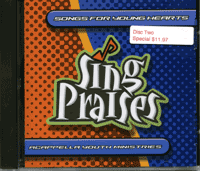 "Guide, guard and direct us..." "Help the preacher have a ready recollection..." "And in the end, if we have been found faithful, give us a home with you in heaven..." "In Jesus' name, Amen." These are all phrases that we hear continually repeated in public prayers in worship assemblies. Does continually repeating these phrasing constitute praying with "vain repetition?"
"Guide, guard and direct us..." "Help the preacher have a ready recollection..." "And in the end, if we have been found faithful, give us a home with you in heaven..." "In Jesus' name, Amen." These are all phrases that we hear continually repeated in public prayers in worship assemblies. Does continually repeating these phrasing constitute praying with "vain repetition?"
In his sermon on the mount, Jesus instructs his followers how to behave as citizens of the kingdom. Jesus said in Matthew 6:7, "But when you are praying, do not use meaningless repetition as the Gentiles do, for they suppose they will be heard for their many words." What is Jesus specifically referring to here? In addition, how might this passage apply to Christians today?
In this context, Jesus is clearly warning against mechanical, thoughtless praying. Disciples of Christ are urged to pray prayers that are radically different from the prayers offered by the hypocritical Gentile, pagan worshippers. R.T. France comments on this verse by stating, "Prayer in the non-Jewish world was often characterized particularly by formal invocations and magical incantations, in which the correct repetition counted rather than the worshipper's attitude or intention" (TNTC 132). The word translated "vain repetitions" is the Greek battalogein which means to "heap up empty phrases; to use many idle words." This type of approach to prayer is demonstrated in the prayers of Gentile pagan worshippers in Scripture. The prophets of Baal continually repeated a "vain repetition" from morning until noon crying out "O Baal, answer us" (1 Kings 18:26). The worshippers of Artemis in Ephesus cried out repetitiously for two hours, "Great is Artemis of the Ephesians!" (Acts 19:34). It seems that this is the type of prayer that Jesus is warning against. Prayer should not be viewed as some magical incantation of words that are continually uttered to God.
It seems that some have been guilty of continually repeating what is often called "the Lord's prayer" in such a fashion. It is important to note, that Jesus is not giving a special formula for approved prayer, but rather he is giving a model to be used in constructing our own prayers. In Matthew's account Jesus says, "Pray, then, in this way..." (Matt. 6:9). Luke's account demonstrates that Jesus gives this model as a means to teach his followers how to construct prayers of their own (Luke 11:1-4). It was never meant to be a "official" prayer incantation that is mindlessly repeated.
Our prayers to God must be carefully and thoughtfully worded (Ecclesiastes 5:2). We must make sure that our prayers are clearly articulated, for we must be "sober" in our prayers (1 Peter 4:7). This instruction demonstrates that Christians must not be guilty of "fuzzy prayers"--prayers that mindlessly repeat trite sayings that roll off the tongue. Rather, our prayers must be purposeful and clearly stated.
That is not to say, that it is wrong to repeat oneself in prayer. Jesus clearly used repetition in his prayer in Gethsemane, praying the same words three times (Matt. 26:44). This was repetition, but it was not "vain." His repetition was for a purpose. In addition, Jesus instructs us to continually repeat our earnest prayers and be persistent in doing so (Luke 18:1-8). Therefore, we must be careful in being too critical of men who use repetitions in their public prayers.
Nevertheless, it is true that we can get into "prayer ruts" where we mindlessly repeat the same traditional sayings of prayer with little thought of their meaning. This is a great danger, and strikes at the heart of Jesus' warning in this verse. Vain repetitions in prayer keep God at a distance by repeating sleepy and tired words. Our prayers to God should be characterized by a vibrant and real spiritual relationship with our heavenly Father. Men who are guilty of continually leading prayer by using the same memorized prayers each year reveal much about their own personal prayer lives. I personally believe that only men that demonstrate a genuine spirituality should lead in public worship. "You shall know them by their fruits" (cf. Matt. 7:20). We must try and avoid "vain repetitions" not only in our prayers but also in the songs that we sing. Singing the same songs over and again can become just as vain. For this reason, Scripture continually exhorts us to "sing a new song" (Psalm 33:3; 40:3; 96:1; 98:1; 144:9; 149:1; Isaiah 42:10; Rev. 5:9; 14:3).
Ultimately the issue boils down to genuine spirituality. Our worship and communication to God should be real, not some memorized ritual.















